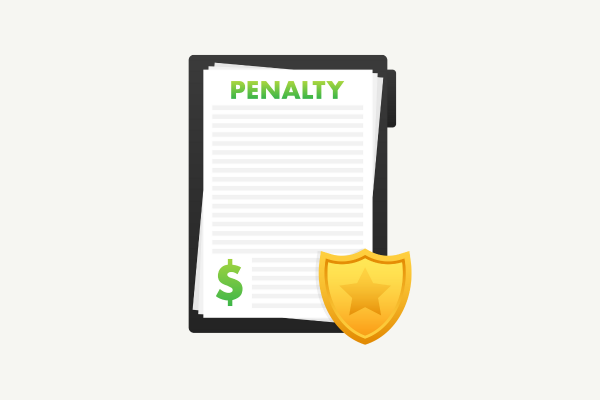
We’ve all heard the saying about death and taxes, but it’s surprising how many people still skip filing their tax returns. If you’re one of them, thinking you can fly under the radar, it’s time to rethink that strategy. Even if you can’t pay your taxes right now, filing a return is non-negotiable. Skipping this step can set off a chain reaction of unpleasant consequences that you definitely want to avoid.
Despite what you may have heard about the IRS being too busy to notice, the reality is quite different. The IRS has a job to do, and not filing your tax return could come back to haunt you in more ways than one. Let’s break down the key tax filing rules and what happens if you ignore them.
💡 Most People Are Required to File Tax Returns
If your income is less than the standard deduction and you don’t owe self-employment taxes, ACA penalties, or qualify for certain credits, you might think you don’t have to file a tax return. But with health and family assistance tied to tax returns, the number of people not required to file is shrinking. So, nearly all individuals, estates, and trusts need to file a return, and they may have to pay taxes. These are two different things, and there are penalties involved with ignoring either one. Even if you don’t have the money to pay the tax you owe, you’re better off filing a return rather than skipping the process. Here’s why:
The IRS imposes a fee for not paying your taxes and a separate fee for not filing. The larger penalty is for not filing—it’s 4.5% per month, compared to just 0.5% for not paying, and that fee gets charged every single month. You could end up paying up to 22.5% for failing to file and 25% for not paying (plus interest on unpaid taxes, which accrues from the return’s due date until you pay). The bottom line is that whether you can pay or not, you’ll save yourself big fees by submitting the required paperwork.
In addition to incurring fees, consider the actions the IRS takes when they don’t receive a tax return from you. The process involves preparing a substitute return, which will be completed without consideration of tax advantages, deductions, or write-offs. This leads to a higher amount owed than if you had prepared and filed your return yourself.
The IRS is limited by a rule known as the “statute of limitations,” which gives them just three years from the date you file to perform an audit. The three-year clock starts when you file a return, so the sooner you get the paperwork in, the sooner your risk of being audited expires. That statute also applies to any refund you might have coming—after three years from the date of filing, you forfeit any refund. Beyond the audit, if the IRS lets ten years from your filing date go by without pursuing the taxes you owe, they lose their ability to collect those taxes, penalties, or interest. The same is true for your ability to include your tax debt, interest, or penalty debt in a Chapter 7 Bankruptcy discharge, which is based on the date of your tax filing (generally two to four years after you file your tax return).
❓ What If You Can’t Pay Your Taxes?
What happens if you file your return without submitting the money you owe?
Once the IRS processes a return that isn’t accompanied by payment, or discovers a taxpayer’s failure to file and pay taxes, they issue a Notice of Tax Due and Demand for Payment detailing how much you owe in taxes, interest, and penalties. You can submit payment via cash, money order, credit card, check, or electronic funds transfer, and the sooner you pay, the better, as penalties and interest will continue to accumulate. If you don’t have the funds available, it’s better to contact the IRS and discuss your problem with them than to ignore the notification. Options for resolving your payment issue include:
- ✅ Allowing a temporary delay: This is generally offered after a review of your situation, during which time the agency may file a Notice of Federal Tax Lien. This document allows the government to place a claim on what you owe until you can pay.
- ✅ Setting up an installment agreement: This allows you to make smaller monthly payments based on what you can afford.
- ✅ Settling through an Offer in Compromise: This is an agreement that’s possible only after all other options have been exhausted, allowing you to pay a lower amount than what’s owed. It’s issued after a complete review of your financial situation and addresses penalties and interest along with the original tax amount. Reaching an Offer in Compromise requires filing an application that costs $150.
It’s important to remember that if you receive a tax bill you think is incorrect, ignoring it is just as big a mistake as not filing a return. Instead, take positive action by contacting your local IRS office and bringing all pertinent documentation to prove your case.
Need Help?
Beyond the financial penalties, failing to file a tax return when you owe money can lead to more severe consequences, including potential criminal charges and a whole lot of stress. Stay on top of the tax filing rules, communicate with the IRS, and save yourself a world of trouble—and money.
Don’t let tax deadlines and penalties get the best of you. Reach out to our team today to help you file back taxes and stay up to date with current tax filing rules and deadlines in 2024. Let’s tackle this together and keep you in the IRS’s good graces!
